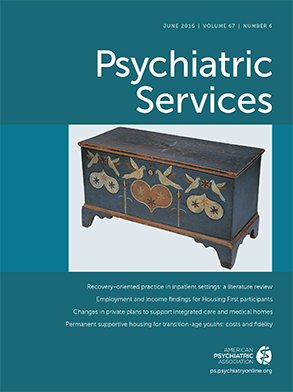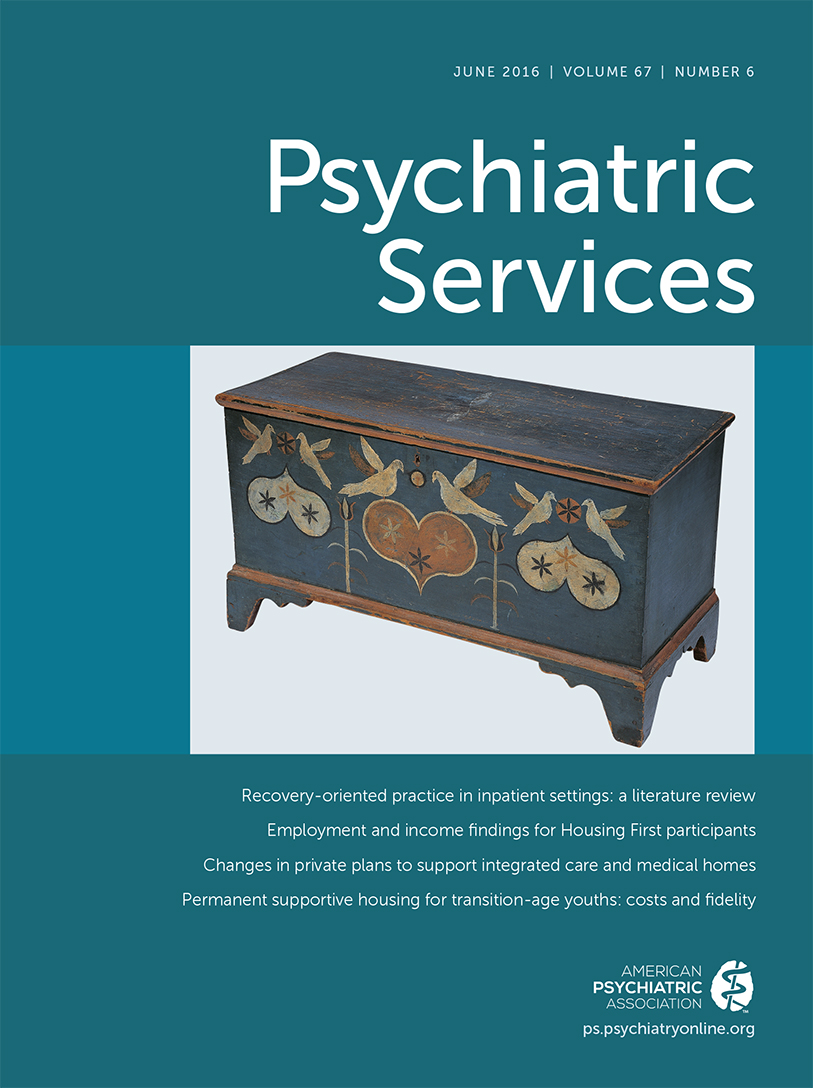Tobacco-related illness may be the greatest contributor to the glaring 25-year mortality gap between the general population and people with serious mental illness, who need intensive tobacco treatment services to achieve prolonged abstinence. In many mental health settings, tobacco use is underassessed and inadequately addressed. Successful organizational approaches to tobacco use disorders in this population require systematic screening, education, support, and persistent intervention over time.
Massachusetts Mental Health Center (MMHC) is a Department of Mental Health community mental health center in Boston that serves 1,300 people with serious mental illness, of whom 50% use tobacco. The center recently embedded primary care services, becoming a health home to address behavioral health and primary care needs in a colocated and integrated fashion. To meet the needs of its tobacco users, MMHC established the Smoke Free Program, an innovative, integrated, collaborative, and team-based service delivery model that leverages ongoing tobacco use assessment, personalized motivational enhancement, and shared decision-making tools and a variety of evidence-based tobacco treatments to identify, engage, and support patients in becoming “Smoke Free at MMHC.”
The Smoke Free Program organizes centerwide tobacco use assessment and treatment in a manner that is systematic, proactive, responsive, and person centered. Informed by the tenets of collaborative care integration models, the Smoke Free Program emphasizes care coordination and care management, routine assessment and outcome monitoring, and regular caseload reviews with consultation for challenging cases. The core of the program is the Smoke Free Team, an integrated care team consisting of a part-time (.4 full-time equivalent) nurse care manager, two quarter-time peer wellness coaches, and a consulting psychiatrist and primary care provider (PCP). The team meets weekly to review a current list of tobacco users, newly completed assessments, and the treatment progress of enrolled patients. The nurse monitors the tobacco use status of the MMHC population, tracking individual and population-level tobacco treatment process-and-outcome measures through a tobacco-focused patient registry that incorporates data from structured fields embedded in progress note templates of the electronic health record. Mental health providers are prepared through training to ask about tobacco use, engage tobacco users in a discussion about their use, and refer them to the Smoke Free Program.
The referral process is designed to minimize barriers to accessing services. The target population includes all patients who use tobacco, regardless of current interest in cutting down or quitting. “Warm handoffs,” where mental health providers introduce a patient to the Smoke Free Team, are encouraged, as are “drop-ins” to the tobacco treatment groups. A peer or nurse makes initial contact with the referred patient, completes a comprehensive tobacco use assessment (in person or by phone), and develops an initial personalized action plan through a collaborative, person-centered approach. Next steps in the action plan are facilitated by the peer or nurse. Ongoing contact is maintained with the patient (even after a successful quit attempt, given high rates of relapse), and structured reassessments occur at one, three, six, nine, and 12 months to evaluate tobacco use, troubleshoot challenges or barriers, adjust the action plan as needed, provide encouragement and support, and coordinate with the mental health team.
In addition to assessment and follow-up, the team provides outreach, care coordination, and facilitated access to multiple tobacco treatment interventions, including individual and group counseling, peer coaching, smoking cessation medication (via coordination with the mental health prescriber or PCP), quitline referrals, text messaging programs, smartphone applications, and cessation Web sites. Hard-to-engage tobacco users receive person-centered coaching to elicit and strengthen motivation for change. These efforts are enhanced by an interactive Web-based decision support system developed and tested for tobacco users with serious mental illness by the Dartmouth Psychiatric Research Center.
The Smoke Free Program launched in March 2015 with centerwide training and advertising. Early successes include a dramatic increase in psychiatrists’ documentation of tobacco screenings: 749 patients had documented screenings, compared with 304 in a similar period before the program’s inception. Patients have been overheard discussing the program in waiting areas. Lifelong tobacco users have participated and successfully quit, sometimes to the surprise of their mental health team. Challenges include referral generation, engaging referred patients in services, and billing for peer-delivered services and tobacco treatment provided in a behavioral health setting. Overall, by integrating a specialized tobacco treatment team into routine clinical care in a community mental health center and leveraging principles of collaborative care and population health management, the Smoke Free Program aims to assist patients in their journey to a healthier and improved quality of life and reduce tobacco-associated morbidity and mortality.

